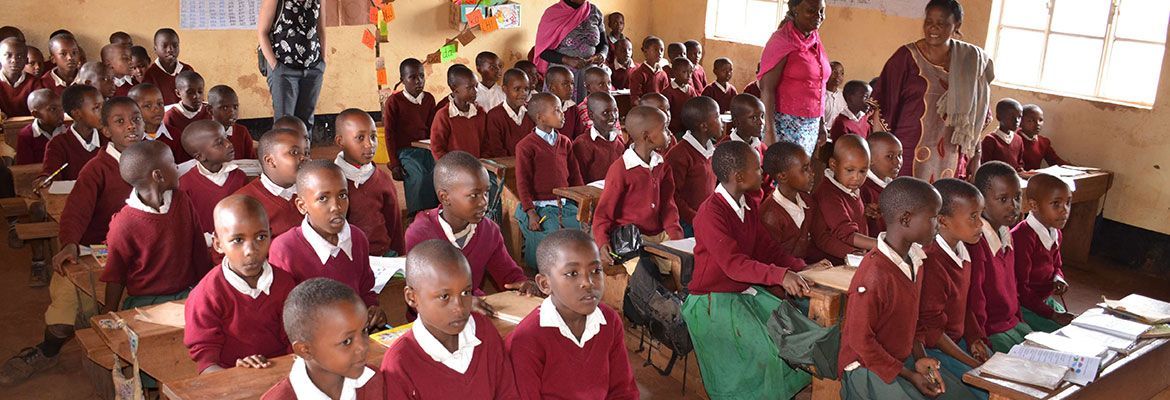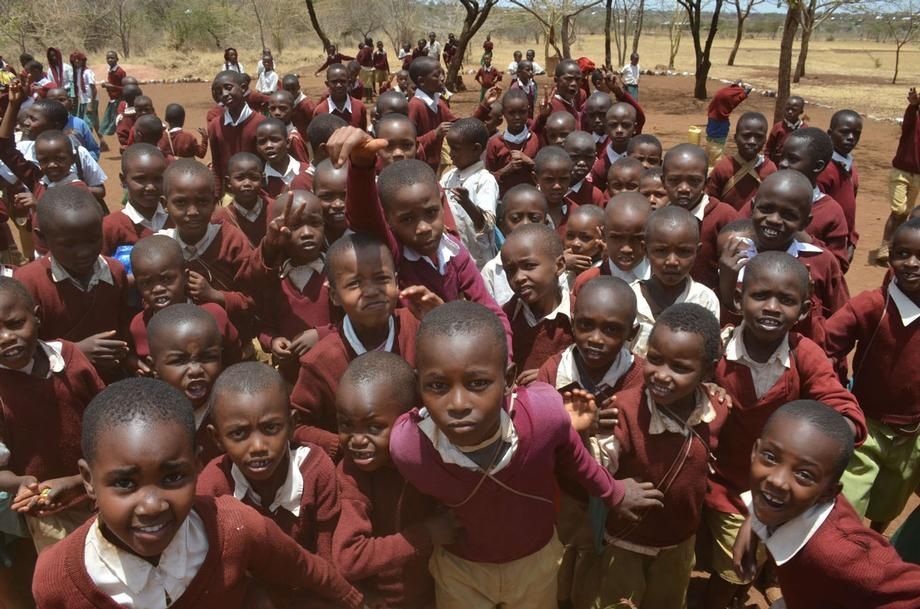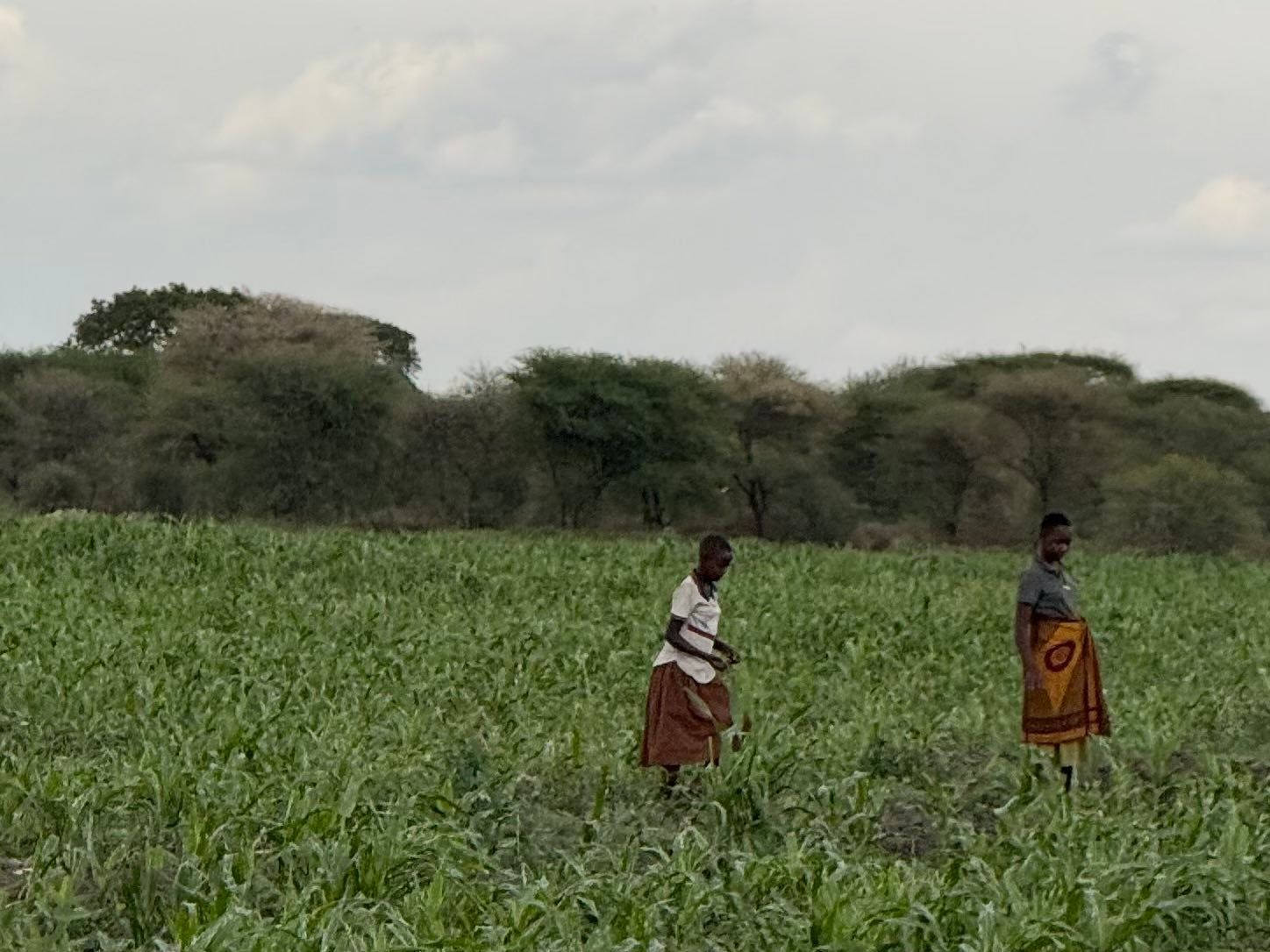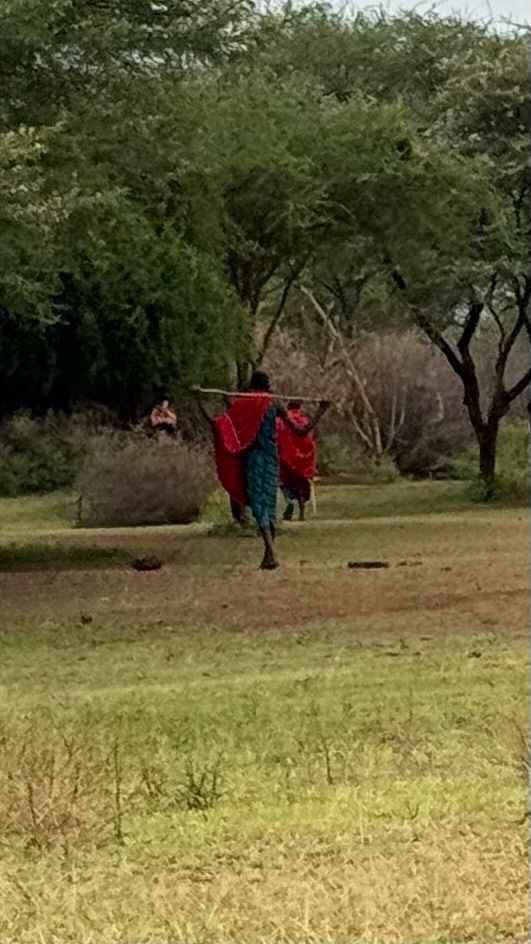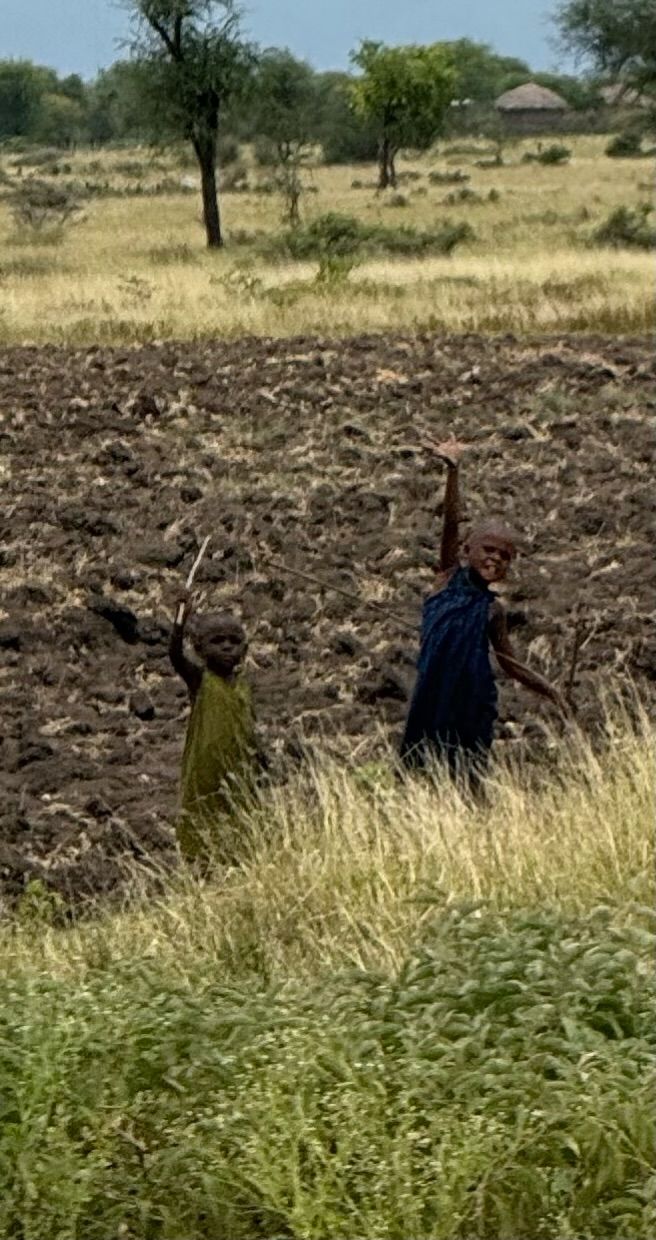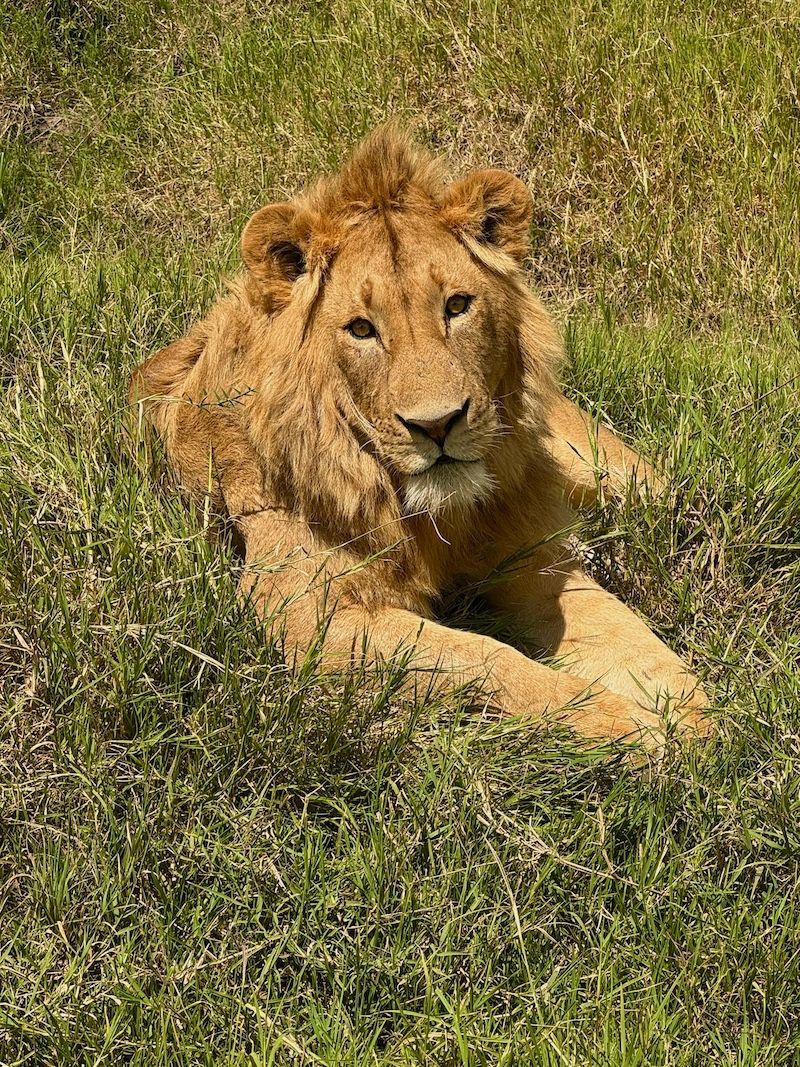About the school & area
Kibaoni Primary School is located just outside the town of Karatu in Tanzania’s northern highlands. Kibaoni Primary School was established in 1990 with two temporary mud-and-grass-thatched structures serving as classrooms. Since 2008, when the foundation began supporting improvements, the school has added 7 classrooms, separate latrines for boys, girls, and teachers, a combined library/administrative building, a kitchen, dining hall, water well, handwashing and drinking stations, and a food garden. As of March 2025, the school was educating 668 children from the surrounding area.
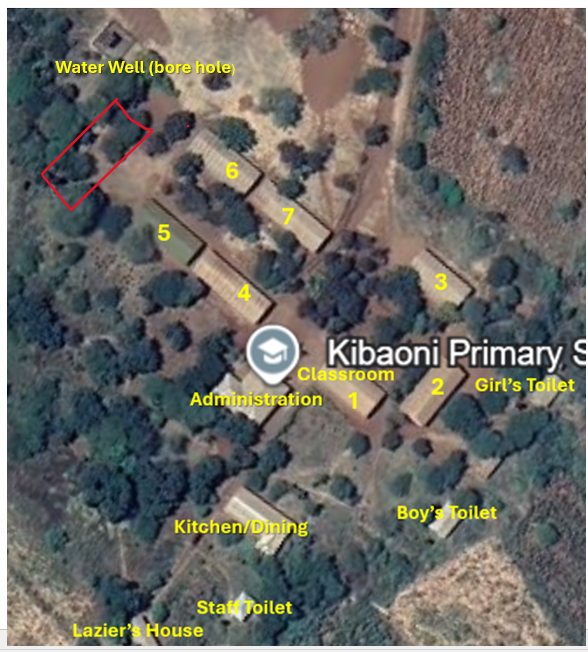
This rural region is known for its fertile farmland, rich cultural traditions, and proximity to some of East Africa’s most iconic landscapes. Families in the area grow crops such as maize, beans, onions, and wheat, taking advantage of the nutrient-rich volcanic soil. Most students at the school come from farming households in nearby villages, where life is shaped by agriculture and strong community ties.
Karutu is in Tanzania’s popular northern safari route, between Lake Manyara National Park, the Ngorongoro Conservation Area, and Lake Eyasi. Eco-lodges and small tourism businesses are scattered throughout the region, supporting the local economy and offering visitors a chance to experience the area’s natural beauty and wildlife.
Daily life in the region reflects a mix of tradition and gradual development. Roads are mostly unpaved gravel or dirt, and transportation typically involves shared vans known as dala-dalas, motorbikes, or walking. Electricity is available in some areas, though often limited or inconsistent. Water sources include shared wells, springs, or piped systems when available.
Headmaster Daudi Lukumai
Daudi Lukumai began his educational journey at Ngarash Primary School, where he studied from 1996 to 2002. He then continued to Irkisongo Secondary School in Monduli District, where he completed his secondary education between 2003 and 2006. Driven by a passion for teaching, he pursued a Certificate in Teaching at Bustani Teachers’ College in Dodoma from 2007 to 2009.
In 2012 and 2013, Daudi advanced his studies at Karatu Secondary School, completing his Advanced Level education (Form Five and Six). He went on to earn a Bachelor’s Degree in Education from Mwenge Catholic University in the Kilimanjaro Region, graduating in 2017. Currently, he is furthering his academic credentials by pursuing a Master’s Degree at the Open University of Tanzania (2023–2025).
Daudi’s teaching career began in 2009 at Mang’ola Chini Primary School, where he taught until 2017. He was then transferred to Laghangareri Primary School in 2018, followed by a post at Mchangani Primary School from 2019 to 2021. In 2022, he joined Akko Primary School and served there through 2024. In 2025, he was appointed to his current position as headmaster at Kibaoni Primary School.
Outside the classroom, Daudi enjoys playing football, spending time with children, and participating in environmental conservation activities.



